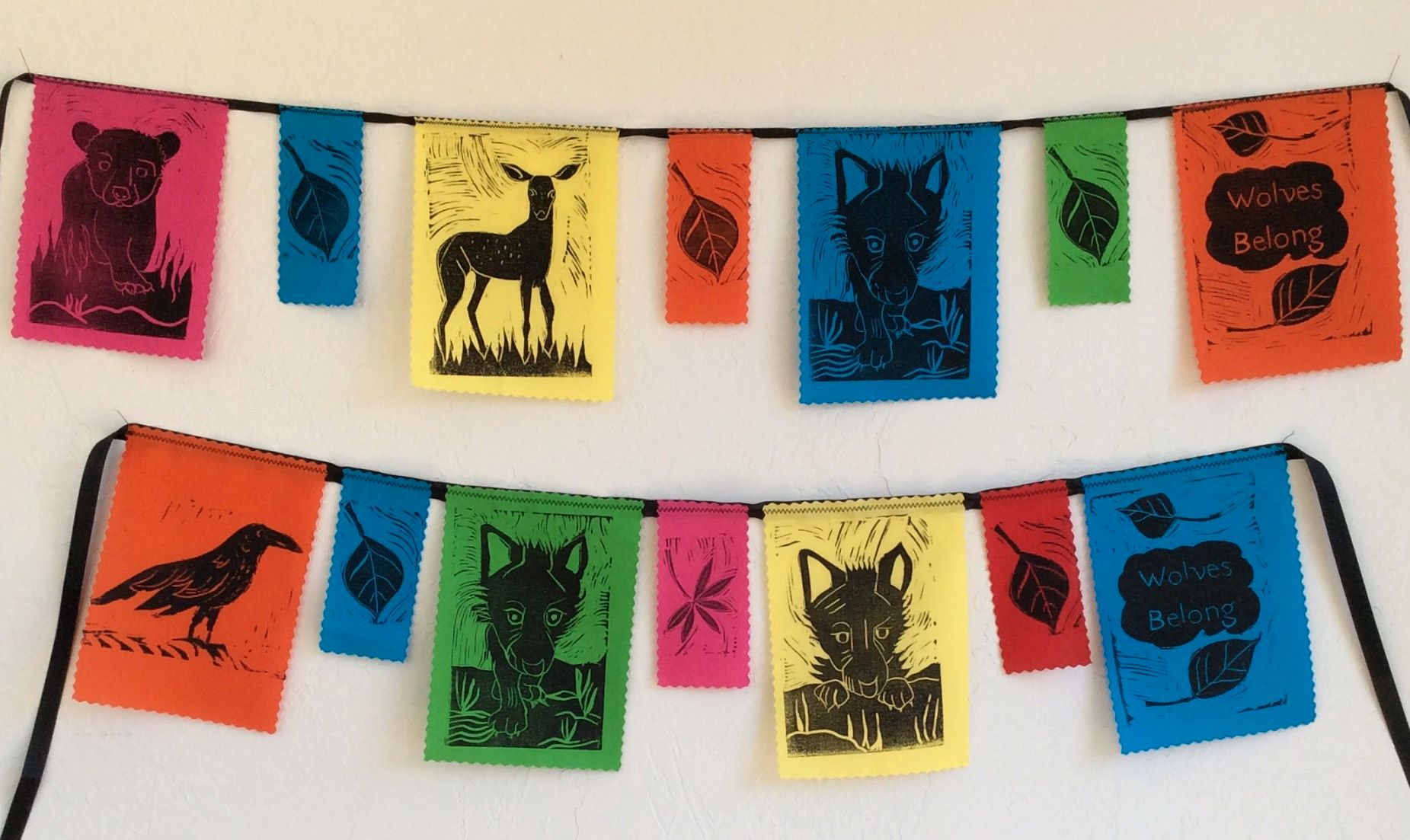Santa Fe New Mexican (Original) Posted August 6, 2022 by Arden Kucate
Fables and stories that we were brought up with and now tell our children often have a common villain, the wolf. When you think of a wolf, what comes to mind?
Maybe it’s the three little pigs running away in terror, the fate of poor Little Red Riding Hood’s grandmother or the boy who cried wolf. In all these depictions, we are faced with a common theme: Wolves are big, scary and bad.
Many of us grew up around ranching and farming and have experienced the villainization of this canine in a totally different way. But if we look beyond our myopic, Anglo-centric culture, we can learn a lot about this animal that deserves our respect and protection.
In some Pueblo cultures, such as that of the Zuni people, the wolf plays an important role as a directional guardian. The wolf teaches about the importance of the pack, which can translate to strong family connections. Even the Aztecs had the highest reverence for the wolf, depicted as a deity, Xolotl, which was the god of fire and lightning.
Being that the Zuni people and Aztecs both lived within the historic range of the Mexican gray wolf (also referred to as the lobo), it is possible that our cultures were in fact seeing our now-endangered lobo. An animal that as of 2021 had approximately 200 living in the wild, these lobos are prominently located in the headwaters of the Gila River in southwestern New Mexico and southeastern Arizona.
Today our small but strong wild lobo population faces some of the same challenges it has in the past: conflicts with livestock and ranchers. Programs in the 20th century allowed and encouraged the killing of Mexican gray wolves, leading them to the brink of extinction. Though we have since adopted protections for the lobo and protocols to keep these animals safe, a recent story came out with alarming and criminal accusations.
Late last month, an article from The Intercept titled, “Cry Wolf,” caused waves in our wolf community. Accusations accompanied by proof of a corrupted system that overlooked and illegally justified killings of wolves were brought to light. Former state director of the U.S. Department of Agriculture Animal and Plant Health Inspection Service, Robert Gosnell, said, “I know some of those depredation [report]s that caused [wolf] removals were illegal.”
Gosnell alleged there were unspoken agreements among ranchers and federal employees tasked with protecting these wolves. Many of the employees used the ranchers’ land to guide hunts as a second job.
With all this coming to light, we need to call for action that protects the sacred lobo, action that allows future generations to learn from the majesty of the lobo. We need to call for an immediate suspension of any depredation-related Mexican gray wolf removals.
Our wolves are hugely important not only to the ecosystem, but to our state, our cultures and our future.
Arden Kucate is a councilman on the Pueblo of Zuni Tribal Council, a respected community member and medicine man.





